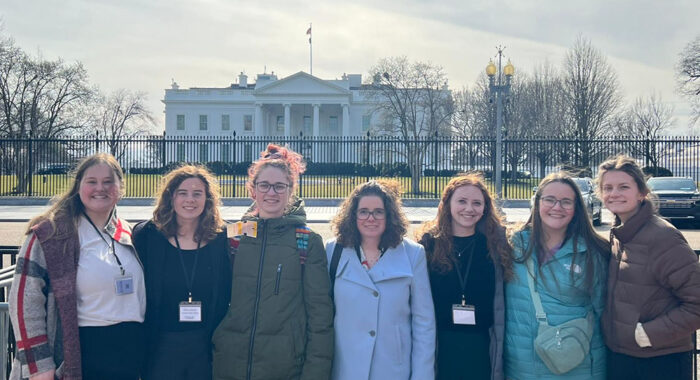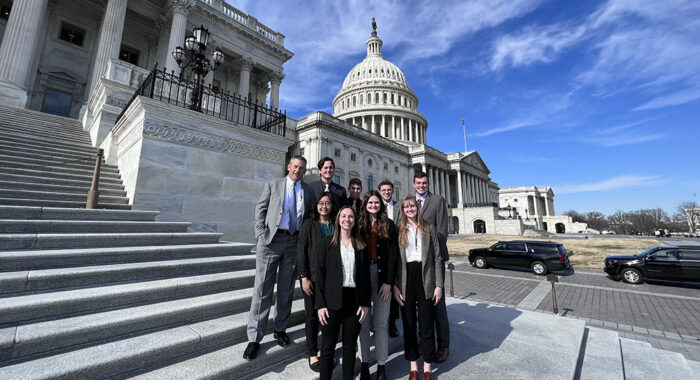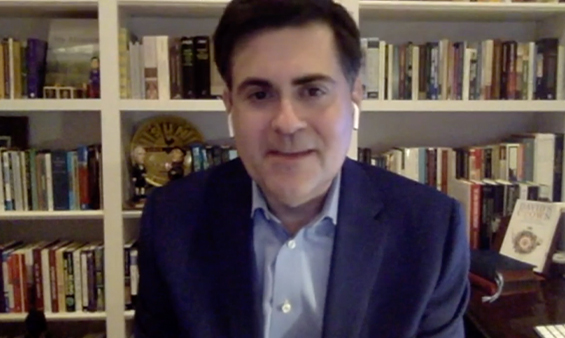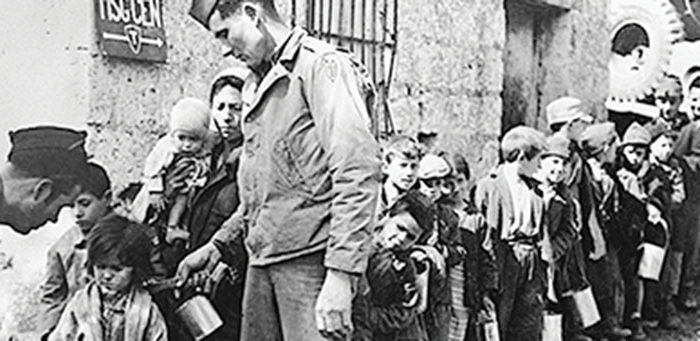Evangelicals don’t necessarily see eye-to-eye on every subject under the sun, but there’s one point on which I think we can all agree: Jesus wants us to have an impact in this world.
In his little book “A Practical View of Real Christianity,” William Wilberforce says that “the state of Religion in a country at any given period, not to mention its connection with the eternal happiness of the inhabitants, immediately becomes a question of great political importance.”
As a direct outgrowth of his Christian faith, Wilberforce led a 50-year political campaign to end the slave trade. His dedication to the cause produced a series of incremental legislative actions that pushed back the trade, inch-by-inch and year-by-year, until it was finally abolished by the British Parliament on March 25, 1807. No wonder that, in our day, Wilberforce is regarded as the great historical exemplar of Christian activism in the public square.
Jesus said, “You are the salt of the earth … You are the light of the world” (Matthew 5:13, 14). The question facing us today is the one Wilberforce had to answer in his own time: What does that look like in practical terms?
I want to try to answer that question from a couple of different angles: the why and the how.
The Why: The Image of God in Man
Anyone who is familiar with me and my work at Focus on the Family knows that I’m unwavering in my commitment to make abortion a distant memory in our nation’s history. For nearly four decades Focus has been involved in a battle to overturn Roe v. Wade, the Supreme Court decision that legalized abortion in all 50 states.
It hasn’t been easy. Our cause, like Wilberforce’s, has seen its share of ups and downs. But through it all, I believe we’ve achieved some great things. Our ultimate goal — the total elimination of abortion — may still seem distant, but we’ve succeeded in improving a very bad situation by resorting to a doggedly incremental approach. As a result, babies have been saved and hearts have been changed.
Through Focus’s Option Ultrasound program (which gives pregnant moms a chance to see the living child in the womb), our Wait No More campaign (which has encouraged 350,000 families to adopt), and our Raising Highly Capable Kids curriculum (which gives families and children in economically disadvantaged communities a new lease on life), we’ve kindled a flame in America that won’t soon be put out. On a personal level, my wife and I made a decision to become foster parents. In all these ways we’ve borne witness to the truth that human life is infinitely precious and worthy of protection and enhancement.
Why are we engaged in this kind of outreach? That’s simple: We believe with all our hearts that people — born and preborn, old and young, weak and strong, healthy and disabled — are created in God’s image (Genesis 1:27). In other words, our actions, like Wilberforce’s, are biblically, spiritually and morally motivated; and yet, as in his case, they also have profound political implications. That’s the way it’s supposed to work.
The How: The Presence of the Kingdom
So far so good. We know what we’re doing and why we believe it’s right. But how are we to go about it? Is there a correct “Christian” way to advocate for life and make our influence felt in the public arena?
I believe the answer is yes. This again is largely a matter of our convictions concerning the image of God in man. But it also has everything to do with our understanding of his kingdom.
Jesus told Pilate that this kingdom is “not of this world” (John 18:36). This is where we have to begin. If, as subjects of Christ’s kingdom, we realize that we don’t belong to this world, we won’t be thrown for a loop when society scoffs at our viewpoint or resists our efforts to put our beliefs into practice. We’ll accept this state of affairs as “business as usual.” We’ll embrace the idea that, as disciples of the King, we’re working against the grain. This in turn will equip us with commitment, resolve and patience — patience with the people who style themselves our “opponents.” As Wilberforce expressed it:
The Christian is reminded at every turn that his Master’s kingdom is not of this world. When all on earth wears a black and threatening aspect, he looks up to heaven for consolation; he learns practically to consider himself as a pilgrim and stranger. He then cleaves to fundamentals and examines well his foundations, as at the hour of death.
If we take this perspective, combine it with what we know about the image of God in man, and mix it all together with what the apostle James calls the “royal law” of God’s kingdom — “You shall love your neighbor as yourself” — I believe we can come up with a genuinely Christian and Christ-like plan for injecting our biblical convictions into the life of the larger community. If implemented faithfully, this plan could be the beginning of a real social and political revolution.
Reaching Across the Aisle
This isn’t just a theory. I’ve seen it work in my own personal experience. I’m convinced that in order to lead a meaningful and robust Christian life, I need to reach across the aisle and engage people who don’t share my biblically based convictions. To that end, I’ve made several attempts over the years to initiate dialogue with leaders in the abortion industry. It’s been an interesting journey.
On one memorable occasion I invited a woman who represented a prominent abortion provider to meet me in our offices at Focus on the Family headquarters. When she arrived I could tell that she felt terribly out of her element. After a few awkward cordialities she asked me if I was going to put a “voodoo hex” on her. I laughed and asked her what she knew about Christianity. “Not much,” she admitted. That led to a conversation about God’s love, followed by a frank but cordial discussion of our ideological differences. When it was all over, we shook hands, said goodbye, and went our separate ways.
As it turned out, that was just the beginning of the story. When my new friend got home that evening, she found a note from her husband informing her that he wanted a divorce. It was as if her whole world had been pulled out from under her. She was distraught and didn’t know where to turn for help.
Because of the love and respect this lady had experienced while visiting our campus, she decided to contact Focus on the Family. One of our staff took her under her wing. No political agenda. No ulterior motive. She simply showed this woman the love of Christ by mentoring her and becoming her friend.
A few months later, I received a note from the woman. She wanted me to know that she was walking away from the pro-abortion industry. More importantly, she had many heartfelt words of appreciation for my colleague who had acted as the hands and feet of Christ in her life. As she put it, “I’ve never seen anyone love another human being the way this person has loved me.”
Politics or People?
How many times have you heard opponents of the Christian perspective accuse God’s people of utilizing “stealth tactics” in the public square? Maybe they have a point. Maybe it’s time we decided that interpersonal dialogue with folks like the woman who visited me in my office is not a matter of political “strategy.” It’s simply a way of living out the Great Commission.
In the end, it’s not my job to hedge my bets on who’s most likely to “come around” on an issue. My role is to love others and be obedient to the Holy Spirit’s prompting by engaging people — not political processes — with truth, love and sincerity.
If you and I can do that, I’m convinced that our actions will eventually assume, almost as a kind of beneficent side-effect, an aura of “great political importance.”
This article originally appeared in Evangelicals magazine.
Jim Daly is president and CEO of Focus on the Family, a nonprofit organization dedicated to helping families thrive. He is also host of its daily broadcast, heard by more than 2.9 million listeners a week across the United States. Under his leadership, the organization has taken on a major role nationally in encouraging and helping facilitate foster-care adoptions, earning recognition from the White House and Congress for its efforts. Daly has a degree in business administration from California State University and a master of business administration from Regis University.




 View All Articles
View All Articles 




























